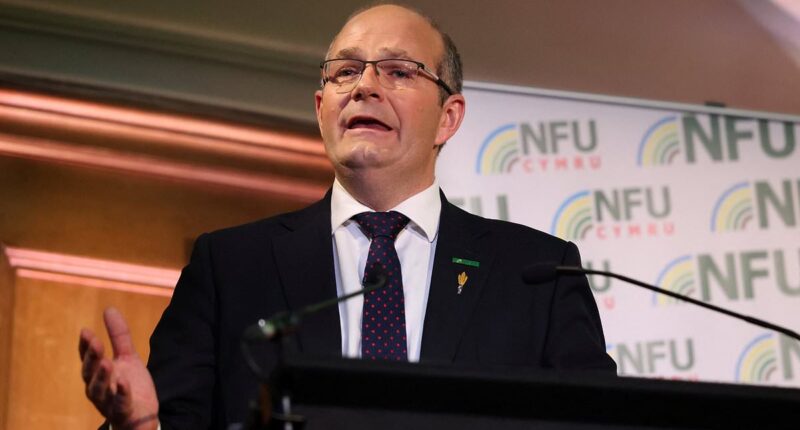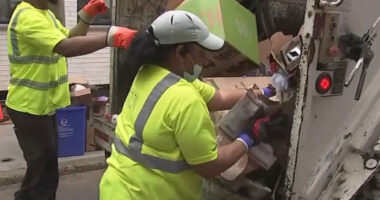When the announcement of the family farm tax came out of the blue last month, I’m sure the Government expected a grumble from farmers.
Ministers probably expected the grumble to last a few days and then the news agenda would take over and farmers would head back to the countryside, annoyed but defeated.
That hasn’t happened. One reason it hasn’t happened is the people who graft 365 days a year in all weathers to produce our food, often for little financial reward, don’t do ‘giving up’. Farmers are in this fight for the long haul.
The other reason would have been obvious to anyone involved in agriculture who understood what an awful impact this policy would have on Britain’s farms.
But because the Treasury didn’t consult with anyone, inside or beyond government, they were surprised at the scale of anger and betrayal which emerged from every corner of the industry in the UK. They have nobody to blame but themselves if this came as a shock.
Two weeks ago, British farmers made that anger clear. Thousands took to the streets in Westminster, while hundreds held meetings with their MPs to explain how the tax would devastate their businesses, families and national food security.
And all the polling shows that the British people are behind farmers in this fight, wit H overwhelming support in all the home nations.
Those events and the campaign we’ve been running clearly reached Downing Street, because the Prime Minister invited me for a meeting last week. I explained the real life consequences of the policy, both human and financial, and how these could have been avoided with consultation. The PM listened, but there’s been no change yet.

NFU President Tom Bradshaw speaks at a National Farmers Union event in Westminster on November 19

Thousands of farmers holding banners and placards, gathered on Downing Street last month to protest against inheritance tax changes in London

The government has insisted that the majority of farms would be unaffected by the changes and up to £3million can be passed on by two people free of inheritance tax
Today, the issue is front and centre in Parliament for the Opposition Day debate. MPs will have a chance to debate this botched policy, and in a vote they can show their constituents where they stand on it. And their constituents, farming and otherwise, will be watching.
In my lifetime I have never seen such widespread anger, betrayal and despair in the farming community.
That’s saying something given the challenges farmers have faced over the last few years, from the impacts of Brexit to skyrocketing costs and extreme weather.
For many, this tax is the final straw. The human cost of this policy is alarming. I’ve spoken to elderly parents who feel they’re now a burden on the family, apologising to their children in tears for something they can’t control.
I’ve spoken to families who can’t see any way they can plan for a future which doesn’t result in losing part or all of their business.
Farmers aren’t generally wealthy people. They are families who have spent generations building up their businesses to provide food for the nation, often for little profit but happy in the knowledge their life’s work will mean they can pass the farm on to the next generation.
Even if on paper their farms are valuable, that value is never seen unless the farm is broken up or sold.

But the National Farmers Union has said many British farmers are under threat

A government minister has warned that the country was ready in the eventuality of a ‘food strike’ before Christmas

The Treasury has significantly underestimated the scale of the impact on British farming and food production for the nation, writes Tom Bradshaw

Farmers will not sit quietly by in the countryside and let this go, Tom Bradshaw says
This has always been the unspoken covenant between farming and government – we’ll get on with producing the food, whatever the challenges and often for little financial reward, and in return you ensure our family farms can be sustained. With these changes to farming inheritance tax, that covenant has been broken, as I told Keir Starmer.
What really rubs salt in the wound is that this policy won’t even stop wealthy people buying up farmland to avoid inheritance tax, which ministers say is the point, as the 20 per cent level is still more attractive to them than the alternatives. It speaks of a government which simply does not understand farming.
The NFU has repeatedly said to ministers that its figures justifying the family farm tax are wrong. Our own impact assessment (the government didn’t do one, by the way) has demonstrated that 75 per cent of farms could be above the £1 million relief threshold. That’s because the Treasury’s initial figures were based on only part of the tax reliefs which can apply to agricultural businesses.
Ultimately, the Treasury has significantly underestimated the scale of the impact on British farming and food production for the nation.
This is bad policy, built on bad data, with no consultation and which punishes genuine food-producing family farms, while failing to catch those the Government wanted to target. That’s why it needs to be halted, at the very least for a proper consultation.
And after days of silence since my meeting with the Prime Minister, I will be very interested to see how the debate today pans out and how the government defends this indefensible policy.
Rest assured, farmers will not sit quietly by in the countryside and let this go – we will fight, for as long as it takes, because this is about not just our farms, but our families and our future.

















